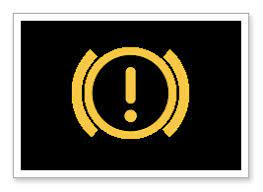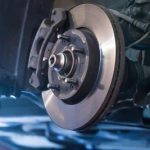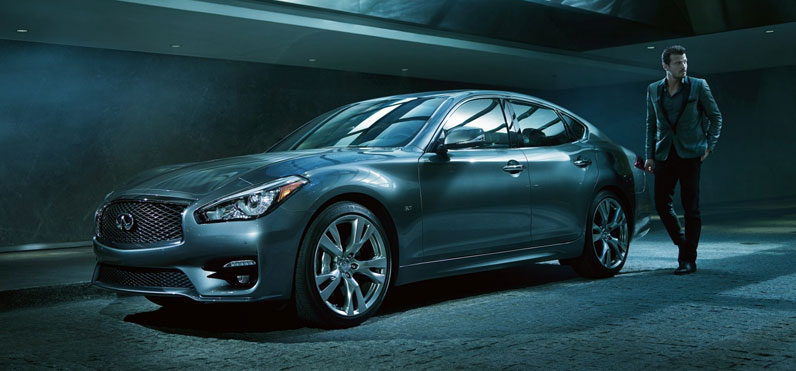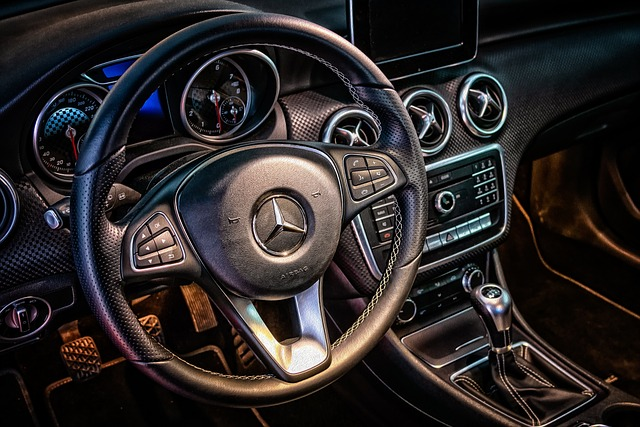
Do you hear a clicking noise when you turn the key in your car’s ignition? If so, it could be an indication of a more serious problem.
This clicking noise is usually caused by one of five things: a dead battery, loose wiring, faulty starter motor, faulty ignition switch or corroded battery terminals.
In this article we will look at each of these issues and discuss how to diagnose and fix them.
So if you start to hear that clicking noise when you try to start your car, read on for some helpful tips on how to get it back up and running again!
Do you want to get your cars Clicking noise checked out? Click here to schedule service today!
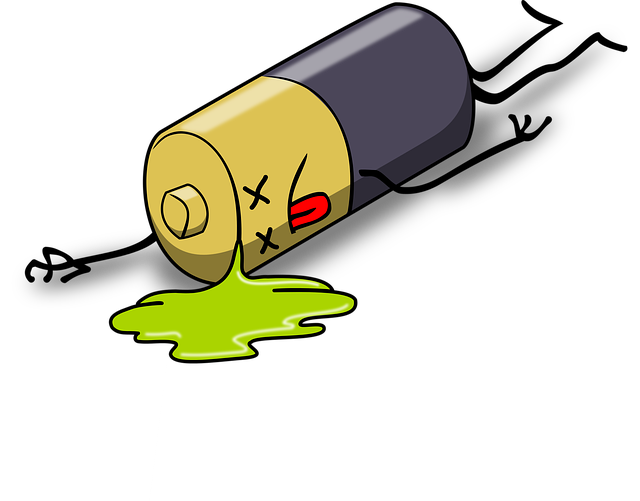
Dead Battery
A dead battery could be the culprit behind that disconcerting clicking noise when attempting to ignite the engine. This is often caused by a lack of power from the battery, also known as cold cranking.
Cold cranking refers to when the car’s battery doesn’t have enough energy stored up in order to start the vehicle. If this is what’s happening, then it will make a loud clicking noise each time you try and turn on your car but it won’t actually start.
The best way to confirm if this is your problem is to perform a cold cranking test with a multimeter. You can do this by connecting one of the multimeter leads to either of your car’s terminals and then touching the other lead onto an unpainted metal surface like any nut or bolt in your engine compartment.
Looking f0r service and parts specials in Melbourne, FL? Click here to see a list of local service specials.
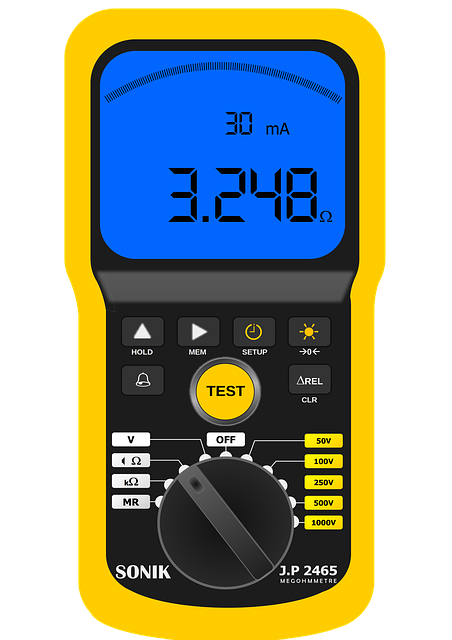
What Will Your Multimeter Show You If You Have Damaged Battery?
If you get less than nine volts reading with your multimeter then this indicates that either your battery has lost its charge or there is something wrong with its internal components such as bad alternator or starter.
In either case, if you find out that it really is a problem with your car’s battery then you should replace it immediately before any more damage occurs due to power loss. It may be costly but replacing an old dying battery can save you money in repairs down the line.
It’s important to properly maintain your vehicle’s electrical system in order for it run smoothly and efficiently without issue – so always keep an eye out for signs of trouble like clicking noises when starting up! Click here to watch a video on how to use a Multimeter.
Do you want to get your cars Clicking noise checked out? Click here to schedule service today!

Loose Wiring
Check the wiring around the starter motor; it could be loose or disconnected, which is causing your difficulty starting up. It’s important to check for any air leaks in the ignition timing as well. If a vacuum leak is present, it can cause an inconsistent fuel mixture going into the engine and consequently, will lead to misfires on start-up.
It’s not always easy to spot a faulty wiring connection, but here are four things to look for:
Check that all cables are connected properly and firmly at each end.
Make sure there’s no visible damage on any of the cables or wires, such as fraying or broken insulation.
Ensure that all connections are free from corrosion or oxidation build-up by using a wire brush if necessary.
Replace any damaged wires immediately, as they may be shorting out and preventing power from reaching other components of the vehicle’s electrical system, such as lights, gauges, and accessories like stereos or navigation systems.
If all connections seem secure but still no luck starting your car, you’ll need to test specific voltage levels with a multi-meter across various points in the wiring harness leading to and from the starter motor itself, including checking for an adequate ground connection throughout its entire length.
Looking f0r service and parts specials in Melbourne, FL? Click here to see a list of local service specials.
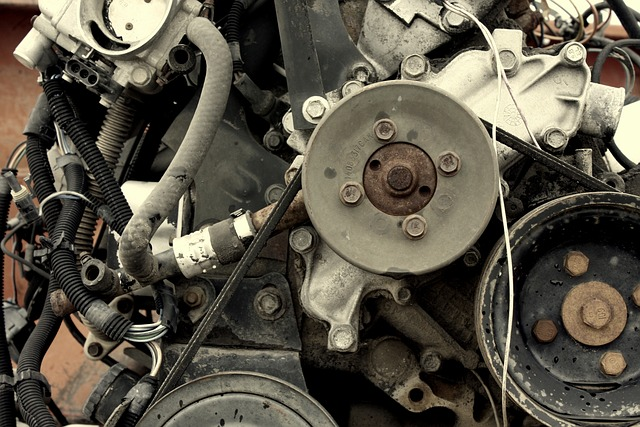
Faulty Starter Motor
If the wiring is all in order, it’s likely that your starter motor itself is faulty, this could be the culprit for the clicking sound when trying to start your car.
The starter motor is a small electric motor that engages the engine of your car when you turn the key in the ignition. It gets its power from two different sources: either from faulty relays or an oil leak.
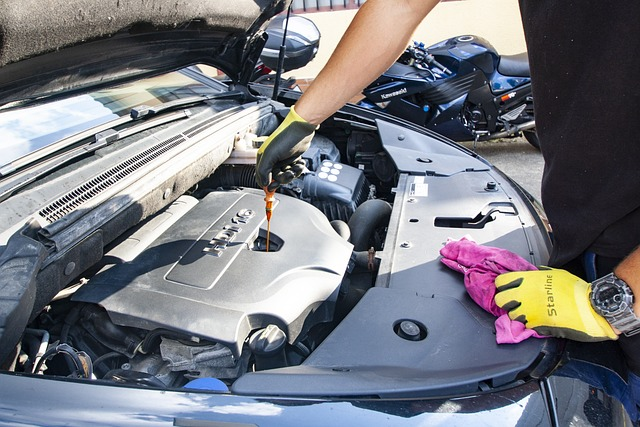
Can Dirty Engine Oil Cause An Oil Leak?
Engine oil leaks can also affect your starter motor’s performance as they cause oil deposits on its internal components and prevent them from functioning properly. If you notice any engine oil puddles under your car after parking it for a while, then it’s possible that an engine oil leak has developed somewhere in its system and must be addressed immediately with repairs or replacements so as not to cause further damage down the line.
If a leak is present it could also cause your car to suffer from low engine oil. Low engine oil can have serious consequences and will be signaled by the following sounds:
Clunking noises
Knocking noises
Ticking noises
Grinding noises
The best way to determine whether it’s actually a faulty starter motor causing your issue is by getting an expert opinion. A reliable mechanic will be able examine all aspects of the problem and provide you with an accurate assessment about what needs fixing so you can make sure everything runs smoothly once again with minimal hassle. If this isn’t the issue that is causing the clicking sound when driving your car, then you may be dealing with a faulty ignition switch.
Do you want to get your cars Clicking noise checked out? Click here to schedule service today!
Faulty Ignition Switch
You may have a faulty ignition switch if you’re hearing a clicking sound and having trouble getting your engine to turn on. Ignition switches are an essential part of any vehicle, as they help send power from the battery to the starter motor and spark plugs. When the key is inserted into the ignition lock cylinder, it typically rotates and engages with a set of electrical contacts in order to send power where it needs to go.
Here are some common signs that your ignition switch may be failing:
Difficulty turning the key or hearing abnormal noises when attempting to start your car
Dashboard lights not illuminating when the key is turned in the ignition
No clicking noise coming from starter motor when trying to start engine
Engine won’t start even after multiple attempts
If you experience any of these issues, it’s important to get a professional mechanic involved in order to diagnose and repair any potential problems with your ignition switch.
Looking f0r service and parts specials in Melbourne, FL? Click here to see a list of local service specials.
How Does An Ignition Switch Become Worn out?
Ignition switches can become worn out over time due to frequent use, or short circuits due to corrosion or debris build-up within the system can also cause them to fail prematurely. A reliable mechanic will be able to inspect your entire electrical system and determine whether or not there are any issues with your ignition switch that need addressing.
In addition, having a qualified technician check for other possible causes such as faulty spark plugs or corroded wiring can save time and money down the line. It’s always best practice for drivers who suspect their car may have an issue with its starting system components like an ignition switch should make sure they get it inspected by an expert as soon as possible so they don’t run into bigger problems down the road.
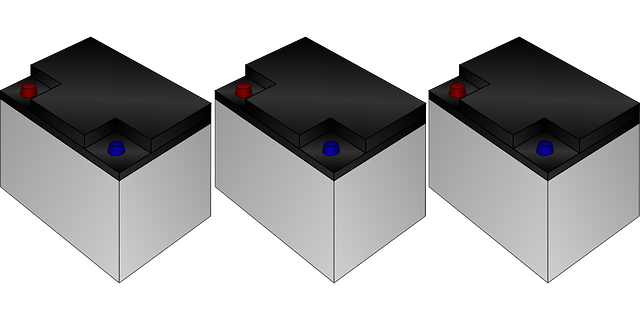
Corroded Battery Terminals
Malfunctioning battery terminals can often lead to difficulty starting a vehicle, as they provide the necessary power needed to start the engine. When corrosion builds up between the cables and terminals, it reduces the amount of electricity that gets to your car’s starter motor. This can cause a clicking noise when you attempt to start your vehicle, as well as other problems such as a faulty battery, or your car making clicking sounds.
It is important to regularly check for corroded battery terminals and clean them if necessary. Corrosion on battery terminals appears in different forms – from white powdery deposits known as sulfation, which is caused by sulfuric acid reacting with metal components; or black and green buildup due to oxidation from weathering; or simply dirt accumulation. Over time these buildups restrict electrical current flow, resulting in a diminished capacity for your car’s starter motor and eventually leading to issues like difficulty starting your vehicle.
Do you want to get your cars Clicking noise checked out? Click here to schedule service today!
How To Prevent Corroded Battery Terminals
To prevent this problem, it is important to regularly inspect both cable ends connected to your battery terminal posts for signs of corrosion or dirt buildup. If present, remove any debris from around the cable ends using a wire brush or similar tool before proceeding with cleaning off any corrosive residue using baking soda mixed with water and an old toothbrush or cloth rag dipped in the mixture.
Rinse off any excess baking soda solution before applying terminal grease or petroleum jelly onto each post connection point after drying thoroughly with an old rag. It is also recommended that you check your car’s voltage output using a voltmeter while running at idle speed – anything below 12V indicates insufficient power delivery and could be indicative of corroded battery cables/terminals that need cleaning/replacing ASAP!
Taking proactive measures can help ensure proper operation of all components related to starting up your car efficiently without annoying clicking noises occurring again in future attempts at ignition startup.
Looking f0r service and parts specials in Melbourne, FL? Click here to see a list of local service specials.
Frequently Asked Questions
What should I do if I still hear my car making a clicking noise after replacing the battery?
If your car is still making a rapid clicking noise after replacing the battery, then you may be having alternator issues or ignition wiring problems.
The alternator issue could be caused by a faulty diode in the alternator, which will cause an electrical spike when you try to start your car.
Ignition wiring problems can result from either worn out spark plug wires or bad connectors at the ignition coil.
To diagnose these issues, it’s important to use an ohmmeter and multimeter to measure resistance and voltage drops in order to pinpoint any abnormalities.
If any of these components are found to have an issue, they should be replaced immediately in order to ensure that your car starts properly.
Is there a way to tell if the starter motor is faulty before replacing it?
To diagnose whether the starter motor is faulty before replacing it, you can use electric troubleshooting. This involves checking for power at the starter motor and then testing the voltage drop across the starter circuit to determine if there are any issues with current flow.
If there is an issue with the starter itself, it will be shown through a low voltage reading or no voltage reading. You should also check for corroded contacts in this step as well.
If these tests don’t reveal any problems, then it may be worth exploring other possible causes of your car’s clicking noise.
What other parts of the car could be affected by a faulty ignition switch?
If your ignition switch is faulty, it can cause a number of problems in your car.
Electrical connections may be affected, leading to issues with the fuel pump and spark plugs not receiving power.
Worn belts could also be an issue, as they won’t turn the engine at the right speed when you try to start it.
Therefore, getting your ignition switch checked out by a professional is essential for keeping your car running smoothly.
How often should I check the battery terminals for corrosion?
You should check your battery terminals for corrosion at least once a year.
Corrosion can build up on the terminals over time, resulting in decreased voltage and increased electrical resistance.
To inspect your battery terminals, first remove any dirt or debris from around them using a soft brush or cloth. Then look closely for signs of corrosion such as white powdery deposits or discoloration.
If you find any signs of corrosion, clean it off with baking soda and water before applying a thin layer of petroleum jelly to the terminals to prevent future corrosion buildup.
Additionally, you should also test the voltage of your battery periodically to ensure that it’s performing optimally.
What are the signs of a dead battery?
If your car is making a clicking noise when you try to start it, this could be a sign of a dead battery.
To check for a dead battery, you should pay attention to tell-tale signs such as dim headlights or interior lights, slow cranking when starting the engine, and no sound at all when turning the key in the ignition.
Additionally, you should periodically perform battery maintenance such as checking the terminals for corrosion and testing its voltage with a voltmeter. This’ll help ensure that your battery is functioning properly and extend its life.
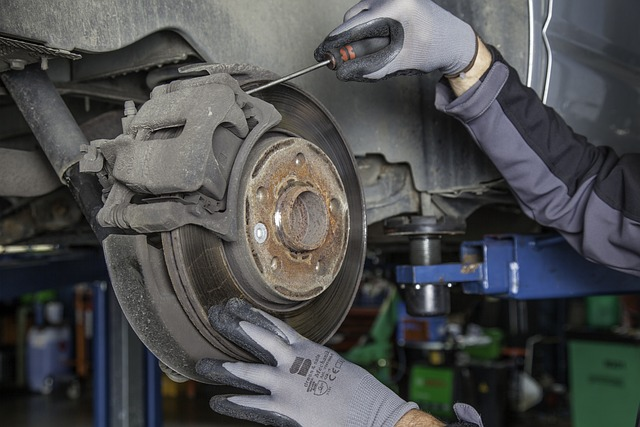
What Other Issues Could Cause A Clicking Noise While Driving?
A Torn Shaft Boot
Damaged Suspension System
Faulty Starter Relay
Failing Ball Joints
Damaged Shock Absorbers
Loose Brake Pads
Damaged Spring Coil
Conclusion
You may have tried a few things already to get your car started, but it still won’t start and you’re hearing a clicking noise. This can be very frustrating, but don’t give up yet!
It’s likely that the cause of this noise is one of four common issues: a dead battery, loose wiring, a faulty starter motor, or an ignition switch. To find out which of these is causing the problem, you’ll need to check each component individually.
By doing so, you’ll be able to identify and fix the issue quickly and get back on the road in no time.


